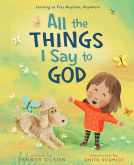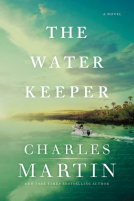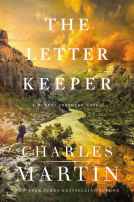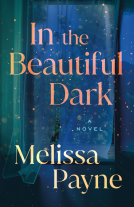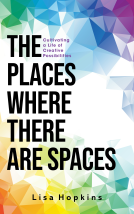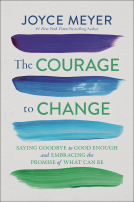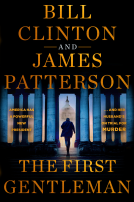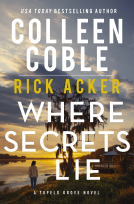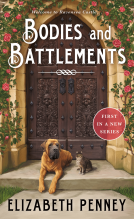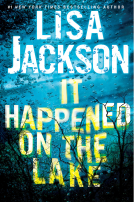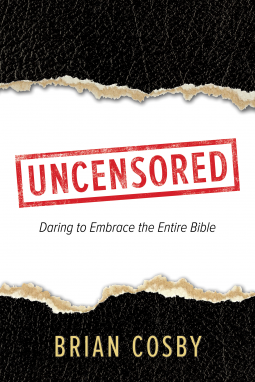
Uncensored
Daring to Embrace the Entire Bible
by Brian Cosby
This title was previously available on NetGalley and is now archived.
Send NetGalley books directly to your Kindle or Kindle app
1
To read on a Kindle or Kindle app, please add kindle@netgalley.com as an approved email address to receive files in your Amazon account. Click here for step-by-step instructions.
2
Also find your Kindle email address within your Amazon account, and enter it here.
Pub Date Oct 01 2015 | Archive Date Dec 01 2015
David C Cook | David C. Cook
Description
In Uncensored, Brian Cosby disrupts this deadly trajectory by explaining why all Scripture is God-breathed, holy, and essential to us as believers. And he invites you to quit hiding behind the fig leaf of half-truth and embrace a healthy, passionate faith.
Available Editions
| EDITION | Other Format |
| ISBN | 9781434709097 |
| PRICE | $0.00 (USD) |
Featured Reviews
 Charles F, Book Trade Professional
Charles F, Book Trade Professional
"Uncensored" is a book that challenges readers to read the "whole counsel of God", not just the "feel good" parts. As Cosby notes in several points the book, Christianity has tended to focus more on the "feel good" parts of the Bible (David slaying Goliath, Jesus feeding the poor) while neglecting to read the "unusual (Lot's encounter with his daughters), "boring" (genealogies) or confusing parts of the Bible. Cosby says that this isn't right. All of the Bible is to be appreciated, if readers of faith believe that the ALL of the Bible comes from God.
I chose the book because of that challenge and it definitely opened my eyes to how I tend to stick to the more "comfortable" parts of the Bible. (They often happen to be the ones I tend to think I know the most about!)
Note: This review is based on an electronic copy provided for reviewing purposes.
Are you unintentionally censoring the Bible? Perhaps even intentionally censoring the Bible?
Brian Cosby has written a great book on the Bible, on how it is important for Christians to read the whole Bible. In other words, it isn't quite enough to just read and "embrace" the parts you really, really love. You have to consider the Bible as a whole, and try to grasp what the message of the whole Bible is.
He examines why different people "censor" the Bible--possible motivations--and how they "censor" it.
Does this matter to you and me? Or, why should this matter to you and me?! Because when we censor the Bible--intentionally or not--we just aren't censoring a book. We're censoring the God that inspired book reveals. And when we recreate God in our own image, that's idolatry. We're to worship God in spirit and truth. When we worship a god we've made ourselves, that's not true worship. We need the truth--and the whole truth--to worship truly and glorify God.
"When we censor the full character of God, we soften His justice, elevate man, and devalue our need for the cross. But when we embrace the entire Bible, we are freed from making God "fit" our politically correct, tame caricatures of a god who seems no more omnipotent than a divine grandpa. But like Aslan, God isn't safe.. The Lion from the tribe of Judah has conquered. Eternally self-sufficient, He's dependent on no one. And His Word reveals His majesty and glory from Genesis to Revelation."
Part One is "Embarrassed by the Bible." And part two is "The Art of Censorship." Part one focuses on the realities facing the Christian church: The need for the whole Bible, and, a need to trust that the Bible is the very Word of God, and that the God of the Bible is worth trusting and believing. This section also includes a summary of the big picture of the Bible, and an overview on how to read the Bible and interpret it correctly.
Part Two highlights seven areas of the Bible that people tend to censor including creation, sin, hell, suffering, parenting, etc.
Who should read this one? First, I recommend it to all Christians. But. Knowing that not everyone is a reader, I'll just add that it would be of special interest to any believer who preaches, teaches, or leads devotions, publicly or privately. (Pastors, teachers, parents) I do think all believers would benefit. Especially those who aren't regularly reading the whole Word of God. (I'm not one that says you have to have a structured plan in place to read the whole Bible in one year. But I am one who encourages you to have some plan in place to read from the (whole) Bible regularly.)
Quotes:
"An incomplete Word leads to incomplete joy. Why would we settle for an incomplete text when every jot and tittle is inspired by our great God? This is a journey to embrace the Bible--the entire Bible--every book, every verse, and every word. It's both daring and exciting."
"It's tough to convince the world that the Bible is true when we don't communicate our own belief in it. When we are embarrassed by what it says or censor those "difficult" passages in sermons or in conversations on the elevator, we communicate as much. When we cherry-pick those feel-good verses and leave the convicting fruit behind, we rob God of His glory by making ourselves the arbiters of truth."
 Paul M, Reviewer
Paul M, Reviewer
This year I have been reading the Bible in chronological order. I admit, it's been a while since I have read through the Old Testament. As I read the history of the Patriarchs, and especially the history of the kingdoms of Judah and Israel, I get so frustrated with the stories. There are times when the people of the Bible make ISIS look reasonable and the God of the Old Testament seems far distant from the character of Jesus. I have to come to grips with the fact that I would rather cut some of those passages right out of the Bible instead of dealing with them as a part of my heritage of faith.
Brian Cosby, a pastor in the Presbyterian Church in America denomination, addresses this very struggle in his new book, Uncensored: Daring to Embrace the Entire Bible. He writes that "many self-professing Christians cherry pick the Scriptures for a feel-good faith." We like the scriptures that make a good bumper sticker or t-shirt slogan, but spend a little time reading the Bible and you'll find plenty that you don't want to see on your next youth retreat t-shirt.
Cosby leaves no doubt that he holds a high view of scripture. He affirms that "God's Word is inspired, inerrant, and authoritative." When there's something troubling in the Bible, "it beckons my trust in a God who is using His Word to take me to His intended destination." Cosby shares R.C. Sproul's view: "When there's something in the Word of God that I don't like, the problem is not with the Word of God, it's with me."
After affirming the reliability and authority of scripture, Cosby addresses some specific areas in which Christians tend to be selective in their reading and use of scripture. He discusses creation, God's justice, God's role in restraining evil while not being the source of evil, his intolerance for sin, and the reality of hell. Cosby also delves into some expressions of cherry-picking faith: churches that emphasize entertainment as worship, and parents who outsource the development and teaching of their children to third parties.
Uncensored has helped me to reflect on ways in which I tend to gloss over or ignore passages that I don't like as I read. It's a great reminder that "all scripture is God-breathed and is useful . . ." His advice is perfect: "When we come to a Scripture passage that is offensive, we should pray and ask, 'God, why have You inspired this text? What are You trying to teach Your church? How does this humble me and glorify Christ?'"
Cosby addresses some of the "hard passages" that may come to your mind as you read, although not to an extent that will satisfy everyone. He gives some good examples, but the strength of Uncensored lies in the encouragement to embrace all of the Bible with the attitude that God included even the embarrassing, unsettling, and downright offensive portions of scripture for a good reason. That reason may not be evident to me, but, like Sproul said, my presumption must be that the problem lies with me, not with God.
Thanks to NetGalley and the publisher for the complimentary electronic review copy!
 Jeanie S, Reviewer
Jeanie S, Reviewer
Because truth, by definition is exclusive..Deep down, censoring the Scriptures reveals our pride. We must decrease in humility and let God’s Word increase in us, having confidence that the whole counsel of Scripture is sufficient. “Let the word of Christ dwell in you richly,” Paul wrote (Col. 3:16). Once we climb down from our high horse, we can treasure the true and living God with joy and delight. Like Zacchaeus in the sycamore tree, the wee little man must come down before the party can begin.
What attracted and engaged me in this study was not so much of the defense of the whole counsel of God but the treasure of God’s word. Why would we want to deny any part of the word of God? Because it is embarrassing, it does not love, it’s not relevant, and it judges me.
Maybe your bible looks like mine if you write and underline it but I do find that I have more of the uplifting and encouraging words underlined than the words that cause my heart to tremble. Every single word is there for us to know God and to know the condition of man. Just like suffering serves a purpose that is hard for us to understand, so does the word of God. Do we look at the word as me centered or God centered? How we look at the word and our suffering changes everything.
With two engaging parts in this study, I was encouraged by Part 1 the unity of the Old and New Testaments. How the old is the shadow to the new is the fulfillment. This helps put the offensive passages in their proper perspective instead of denying and brushing them off. This actually helps you understand and know God more deeply. It is getting down to the roots of redemption. Part 2 deals with the whole character of God and why we must understand the truth of God’s character.
The following are some of the quotes that I found encouraging and engaging.
When we censor the full character of God, we soften his justice, elevate man, and devalue our need for the cross. But when we embrace the entire Bible, we are freed from making God fit our politically correct, tame caricatures of a god who seems no more omnipotent than a divine grandpa.
Pertaining to Adam and Eve – They covered themselves because they were afraid of these new feelings called rejection and shame. As fallen, sinful humans, their natural instincts drove them to cover up, and man’s proclivity to “cover up” has been the name of the shame game ever since. Today, many self-professing Christians are ashamed of certain portions of the Bible – whether they realize it or not and use various leaves to cover up; morality, social justice, political activism, checklist obedience or Yoga inspired spirituality.
When I question, or decide which passages in the Bible to follow, I miss out on the truth that sets me free. When we avoid the biblical practice of church discipline, for example, we miss out on the joy of seeing wayward sinners reclaimed or seeing Christ establishing greater peace and purity in His bride. When we avoid the doctrine of hell in our preaching and teaching, we miss the experience of gratitude of what we are saved from and the hope of what we are saved for.
God’s mission is to be glorified above all else. The praise and worship of God is the purpose of which he created the world. You might object at this point: Well if that’s true than God is just a self-centered egomaniac. But if God were to pursue any goal other than His own glory, it would be idolatry. Think about it. He would be elevating the creation above Himself, the Creator. It is necessary and right that God’s chief end is to glorify Himself, for our sake.
This was a joy to read and to treasure the word of God. Yes there are difficult verses to follow and understand but it ultimately glorifies God and is for our good when we embrace instead of deny. We embrace by seeking with questions what God is revealing thru his justice, his holiness, and his wrath and ultimately his redemption. What is my response? What is God showing me? What is God doing? Let us know that the Lord is God! The great I AM.
A Special Thank you to David C Cook and Netgalley for the ARC and the opportunity to post an honest review.
 Reviewer 124126
Reviewer 124126
The description only just scratches the surface. You know those awkward questions you hope no-one asks, because "I don't know" just isn't a good answer, and the passages you don't like to think about? What about those questions that children pose and teenagers love to discuss, dissolving your previously solid ground? They're in here. Dinosaurs, the apparent disparity between Old and New testaments, suffering, hell... they're all here, with much more.
Brian Cosby challenges us in each chapter. What is the difference between affirming only parts of the Bible, or in believing a partial gospel? He points out that it's tough to convince other people of the Bible's truth when you're not convinced yourself, because censorship communicates distrust.
He examines why we censor the Bible, what it reveals about us and our own faith, and why the Bible can - and should - stand on its own, what it means when something "offends" us, and teaches us how to read the Bible properly, with appropriate context and through the lens of the various Biblical covenants, managing all this while admitting that he also has a lot to learn. At each stage talking points provide a summary for review, while the discussion questions make you examine your own heart and mind.
There were a couple of points with which I disagreed, or was a bit uncertain, which actually make it ideal for a study or discussion book. I'd love to use this in a book club, and have no doubt that many of these topics will make you squirm. If you're like me, you'll come away with a better sense of understanding of God's character and intentions through the Bible, and the ability to notice and properly analyze those passages I often skip over.
